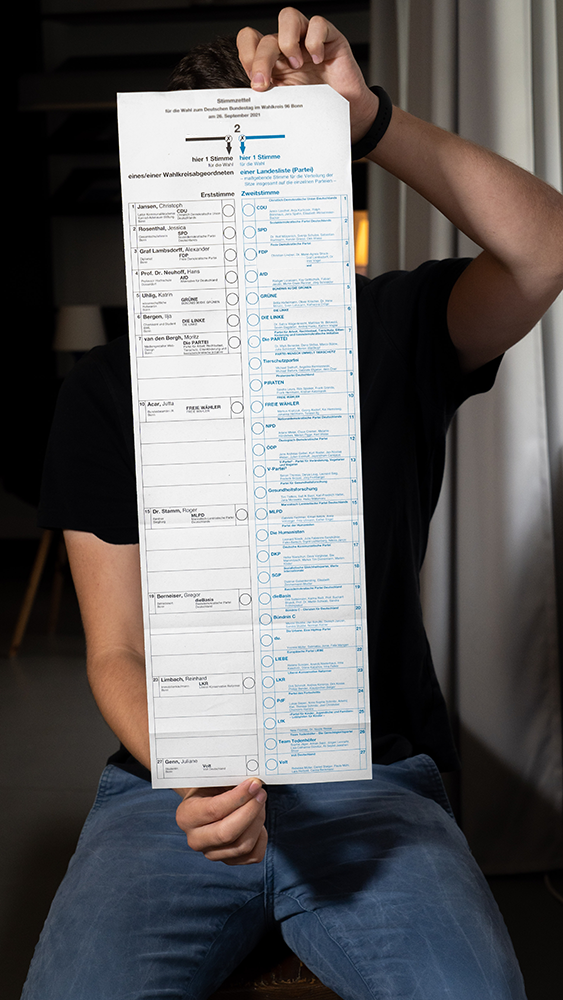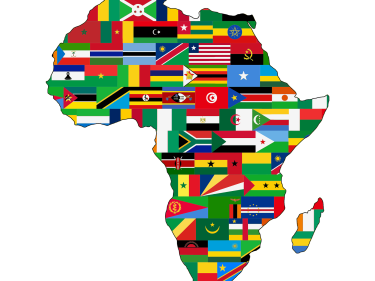Democracy Demands Effort
Democracy Demands Effort
Democratic countries have long balanced stability and unrest. Are we at an inflection point?
Is American democracy in peril?
Three Harvard scholars of government and politics share their concerns about the U.S. political landscape.
Read more from The Harvard GazetteThe future of voting

-
Voting has always been an evolving process. In America’s voting history we’ve made many changes to who can vote, and today our experts look at further improvements.
-
☑ New places to vote
“Stadiums and arenas make excellent polling sites. They are big, have parking, are usually near mass transit,” says Ash Center Fellow Tova Wang. Learn more about arena voting
-
☑ New ways to increase turnout
“We have to begin to think about universal voting. How do we create an affirmative duty by the government to get people out to vote,” asks Harvard Kennedy School Professor Cornell Brooks. Learn more about the obstacles and consequences
-
☑ New types of voting
“Under the current system … if there are many candidates running for office, the candidate with the most votes might actually have just a fraction of the overall total,” says Eric Maskin, professor of economics and mathematics. Learn more about ranked choice voting
-
☑ New tools for representation
“It’s one thing to say, ‘Hey, I think that map looks unfair because the boundaries are super squiggly.’ But … a judge has to clearly be able to decide: Is this fair or not,” says Cory McCartan, a Ph.D candidate at the Graduate School of Arts and Sciences. Learn more about these algorithms for fighting gerrymandering
-
☑ New approaches to obsolete laws
“What the Electoral College does is to give states weight in the election in proportion to their population, not in proportion to the number of people who vote,” says Harvard Kennedy School Professor Alex Keyssar. Learn more about improving this fascet of our democracy
-
☑ New ways to make every vote count
“States that implemented certain policies, like … ballot cure, ballot tracking, and ballot drop boxes, generally had lower rejection rates,” says Harvard Kennedy School student Jose Altamirano. Learn more about reducing rejected ballots
The future of bipartisanship
“Part of the angry, confrontational, polarized culture we have gotten into is that it makes us forget the complexity of people,” says Radcliffe Fellow Anand Giridharadas.
Read more about the importance of engaging with one another in a positive way
Confronting the myth of democracy
Author Eddie S. Glaude Jr. discusses how recent historic racial achievements have led to a fierce counter-reaction at a critical time in efforts to build a genuine multiracial democracy.
Getting beyond “us versus them”
Coverage of electoral politics, polarization, and other contentious issues can be more useful when it considers voters, rather than just vote-seekers.
Becoming receptive to opposing views
A new paper examines decades of research on receptiveness to opposing views, offering insights into how to evaluate other people’s opinions and why some discussions explode into angry arguments.
Teaching across a political divide
In an episode of the Harvard EdCast podcast, experts discuss how educators can effectively discuss the election in their classrooms and help a younger generation move past polarization.
Navigating the path out of polarization
Harvard Business School professors Rawi Abdelal and Rafael Di Tella examine the shifting media landscape and geopolitics that contributed to today’s political polarization.
Can we sell democracy the way we sell shoes and beer?
Harvard behavioral scientist Julia Minson says an experiment based on a beer ad shows the power of creative approaches to easing partisan conflict.
The future of media and misinformation
Trading the newsroom for the classroom, Professor Nancy Gibbs uses her experience to help students understand how today’s media ecosystem shapes public opinion and policy.
Read more about the challenges facing the media and democracy
- Harvard Law School
How can protecting the media also protect democracy?
- Harvard Kennedy School
Decreasing disinformation in public discourse
- The Harvard Gazette
The rise of weaponizing memes
- The Shorenstein Center
How an authoritarian wields social media
- Harvard Law School
Social media and democracy
The future of global democracies
Harvard experts are exploring ways to improve and cultivate democracies around the world.
Learn how Harvard Kennedy School faculty see the current state of global democracies

Struggling democracies and lingering colonialism
Maya Wiley, president of The Leadership Conference on Civil and Human Rights, explores how a lack of multiracial democracies inhibits true representation globally.
Struggling democracies and lingering colonialismThe African continent
Was the pandemic an opportunity for destabilization in African countries?

The Philippines
Will clan politics and historical revisionism continue to reign supreme?

YOU MAY ALSO LIKE






